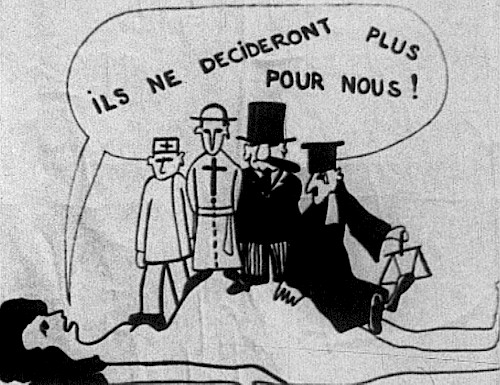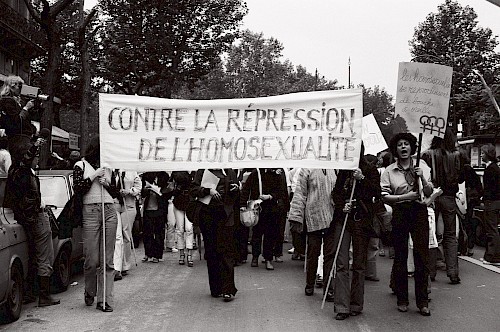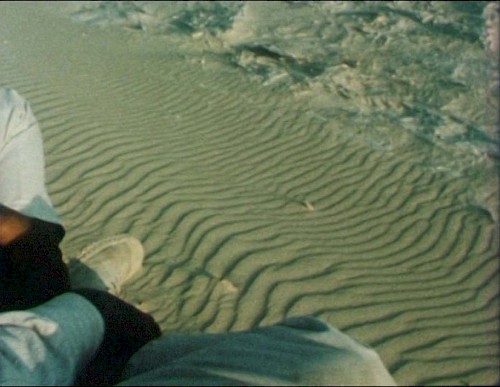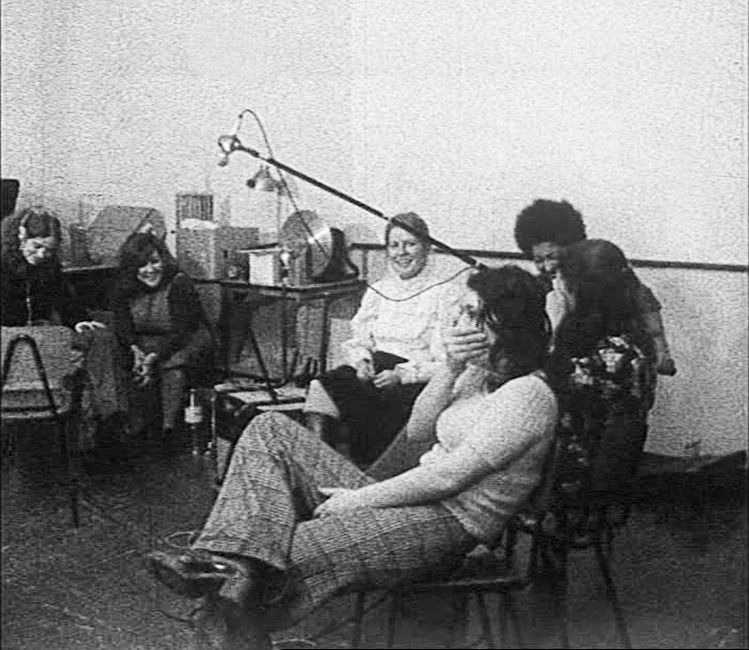A woman without a man is like a fish without a bicycle.
*
As part of the theme Women Filmmakers, Feminists, Queers, we will explore a decade rich in feminist and lesbian videos and films with three precious films from the archives of the Centre audiovisuel Simone de Beauvoir, archives that are unique in every sense of the word.
Three films made in the 70’s and 80’s by four feminist directors are shaking up the issues of sexuality, communities of life between women, struggles for LGBTQ rights. The titles of the films are unequivocal and are signed by groups like Videa, by activists like Claude Jourde or committed artists like Vivian Ostrovsky.
In 1974, the feminist activist Claude Jourde, after having alerted feminists and in particular Delphine Seyrig, left with a 16 mm camera to film young women known as “mother-daughters” who were fighting for their rights and against their isolation. Claude Jourde signs with a very clear title Les Enfants du gouvernement (Children of the Government) denouncing the French government’s stranglehold on the maternity, children and sexuality of these young women.
These single mothers, who have not chosen motherhood, are expelled from their schools and relegated to maternity homes, cut off from their schooling, their friends, and their families. The State says it is “protecting” them and encourages them to give their future child up for adoption to the State while making them feel guilty. They are treated as irresponsible. They are not given any information about sexuality, childbirth, and even less about abortion. The institution prepares them to be good wives and housewives above all, not to make demands and to remain in their place as submissive women. Gone are the mathematics and French courses, replaced by courses in sewing, cleaning, cooking, housekeeping and baby hygiene.
In 1977, Videa’s activists decided to film a march organized mainly by lesbians against the anti-lesbian and anti-gay campaign (the terms lesbophobe and homophobe had not yet appeared) led by Anita Bryant in the United States. Videa will film the demonstration, all its slogans and banners very inventive, claiming against violence. They will practice the “radiotrottoir” to get the reactions and opinions of onlookers who see a large mass of lesbians and gays marching through the streets of Paris. A real mini sociological survey on the “French and homosexuality” which is a milestone. Some French people ask the videographers who film them if all this would not be a disorder of nature, nature which is regularly invoked to prove that this is definitely not in the order of things. The Videa group signs this video with a whimsical name: “Le lézard du péril mauve et Ortie 14”, the mark of a foolproof inventiveness.
In Allers Venues Vivian Ostrovsky produces a film exciting all our senses around a group of friends sharing time, places, loves, pleasure to be together and taste for nature. The jouissive device explodes in the bodies filmed in jerky images punctuated by euphoric music.
The struggles and creativity of feminists and lesbians in all spheres of society and the fight against the stigmatization of single mothers, against lesbophobia and for life shared between women find in these three films a collective and political expression. They report the militant practices born from the will to change the place assigned to women and lesbians in society: the crucial moments that are the struggles in the places of oppression, the street demonstrations and the times shared to affirm one’s identity and simply to live in all freedom.
The essential role of taking control of the technique to film, record and edit one’s own images and define one’s representation. These three titles come together to bring out a vision outside the viewpoint of hetero-patriarchy and machismo. It is the affirmation that one takes one’s place in the world in all equality.
—
Nicole Fernández Ferrer
(Simone de Beauvoir Audiovisual Center)

















